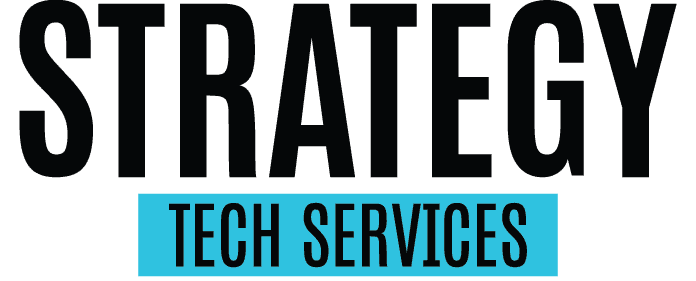
The increasing digitization of patient records, reliance on telehealth services, and emerging cyberthreats have made IT security a top priority. But it can be hard to determine which threats are the most likely to attack your practice and which security measures will safeguard your business the best. Let’s review the latest security technology lessons of 2024 to better understand how to protect sensitive data and maintain the trust of your patients.
Stay Educated on Common Threats
New cyberthreats have started emerging on a regular basis, particularly targeting healthcare practices big and small. This is due to the valuable data these businesses hold. Understanding these cyberthreats is the first step to be able to identify possible attacks and prevent them from shutting down your systems.
Ransomware
Ransomware continues to be a significant threat. Cybercriminals are developing more sophisticated ways to infiltrate systems, encrypt data, and demand ransom. This cyberthreat puts practices in a zero-win situation, emphasizing the need for strong protective measures to prevent it.
Phishing
Phishing remains a prevalent method for cybercriminals to gain access to sensitive information. As these schemes become more advanced, cybercriminals are now able to mimic legitimate communications from trusted entities to convince recipients to open malicious links.
Insider Threats and Human Error
A considerable portion of data breaches result from insider threats or human error. Staff members might unintentionally click on malicious links or fail to follow proper security protocols.
Ensure You Have the Latest IT Security Technology
Staying ahead of these and other cyberthreats requires the latest security technology. Luckily, 2024 has seen significant advancements in this area, offering medical practices effective tools to enhance their cybersecurity posture.
Artificial Intelligence
One such tool is Artificial Intelligence (AI). This technology can detect and respond to threats in real-time, often before any damage even occurs. This proactive defense mechanism can also be tailored to your practice’s unique needs, ensuring all of your systems are being monitored and protected 24/7.
Blockchain
Blockchain technology is another tool that has gained traction as a means to secure patient data. This ledger system secures all of your sensitive information through a decentralized computer network. By ensuring that data is not stored in a single location, this security technology makes it harder for cybercriminals to access any sensitive data.
Encryption
Encryption is a fundamental component of IT security. Advanced encryption methods ensure that even if data is intercepted, it remains unreadable to unauthorized users. Employing the latest encryption technologies will protect patient data both in transit and at rest. This is only if you ensure that all communication channels, including emails and messaging systems, are encrypted though. Use end-to-end encryption to secure patient interactions and data transmissions so that no matter how you and your team discuss important information, it is protected.
Follow Regulatory Compliance and the Best Strategies
Compliance with regulations like HIPAA and implementing the best strategies is essential to avoid penalties and ensure patient data protection. 2024 brought several regulatory updates aimed at strengthening IT security technology in healthcare. This included stricter requirements for data encryption and secure communication as well as enhanced guidelines for incident response and data breach notification. To accomplish this, you and your practice must regularly review and update your compliance policies to align with the latest regulatory requirements. Also be sure to conduct periodic audits to ensure adherence to these standards.
Implementing the best security technology strategies is crucial for maintaining robust IT security. These practices not only help in regulatory compliance but also in building a solid defense against cyberthreats. Multi-factor authentication (MFA) helps add an extra layer of protection by requiring multiple forms of verification before granting access to systems. Be sure to enable MFA across all systems and applications used by your practice to prevent unauthorized access.
Providing regular training sessions is another great practice to follow as it helps your staff recognize and avoid potential threats, such as phishing emails. Conduct ongoing security training programs to educate employees about the latest threats and what they can do to act as the first line of defense. You can further prepare for and prevent cyberthreats by conducting frequent security audits. These can help identify and address vulnerabilities before they can be exploited. Schedule regular audits to assess your security posture and implement necessary improvements, always staying one step ahead of cyberthreats.
Practical Lessons and Strategies
Learning from past incidents and adopting proactive strategies can considerably enhance a practice’s security technology. Start by creating a robust incident response plan that outlines the steps to be taken in the event of a cyberattack. This plan should include clear roles and responsibilities, communication protocols, and steps for containment, eradication, and recovery. Just remember to develop and update your response plan on a regular basis to ensure quick and effective action during an actual cyberthreat.
Regular data backups are also vital for ensuring data availability and integrity. Implementing a reliable backup strategy can help restore operations quickly after an incident. To optimize your backup system, make sure your backups are automated and are stored in secure, off-site locations. You must also conduct periodic testing of backup and recovery procedures to ensure you can restore your operations when the time comes.
Optimize Your Security Technology with Strategy Tech Services!
2024 has underscored the importance of robust IT security for all healthcare practices. By understanding evolving cyberthreats, adopting advanced security technology, and implementing the best protection strategies, your practice can secure your sensitive data and maintain patient confidentiality. This can be overwhelming, especially when it comes to coupling the complexity of managing IT security with staying compliant with regulations and monitoring for potential threats.
This is where Strategy Tech Services can help. We specialize in providing IT security solutions. Let our team of experts stay on top of the latest threats and security technologies so you can focus on running your practice. Book a conversation today to learn how we can help safeguard your practice, secure patient data, and ensure compliance with industry regulations.


